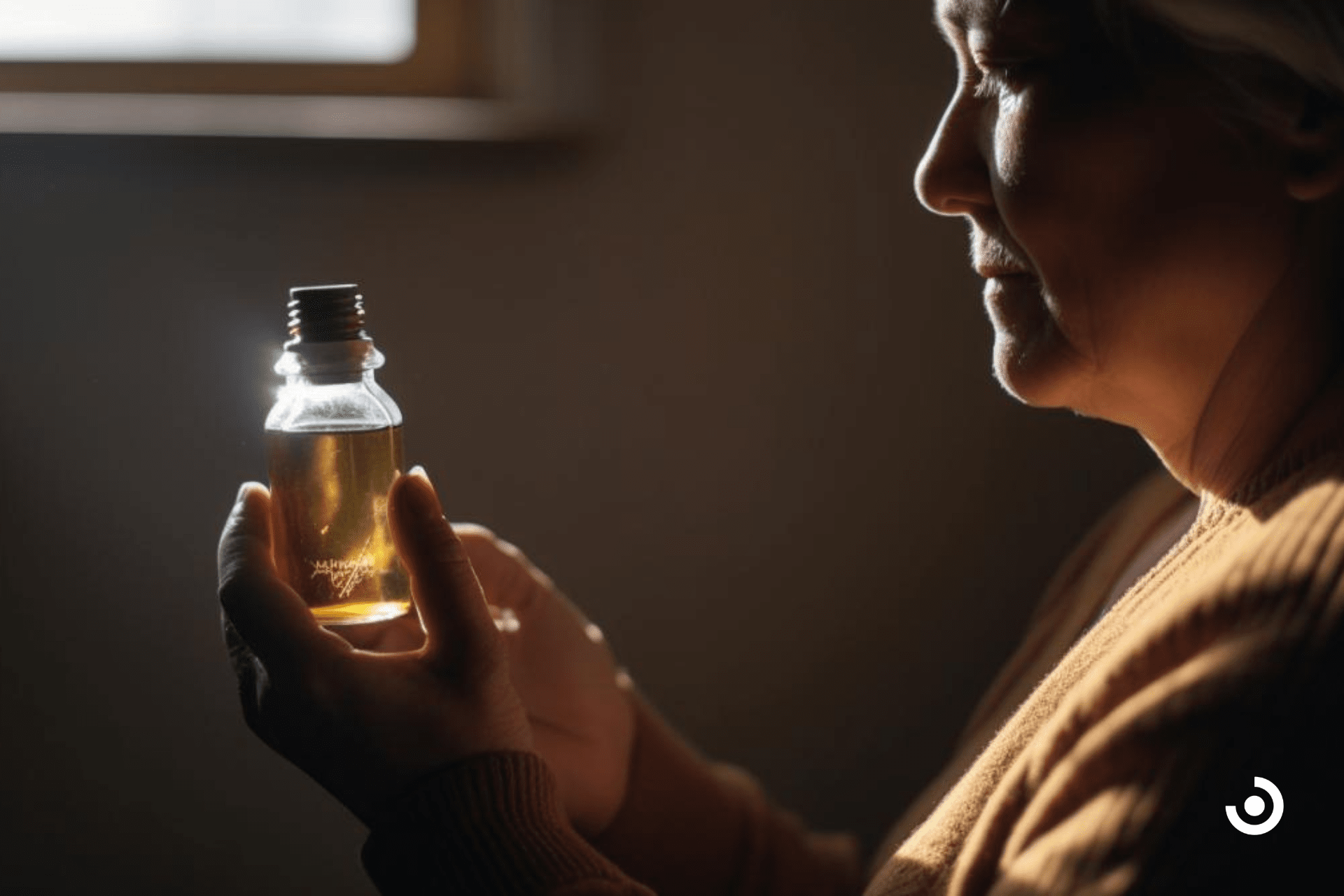The Role Of Cannabis In Chemotherapy
by Tayyaba Amir · March 7, 2024
Unlock the potential of cannabis in chemotherapy – see how this natural remedy is transforming treatments and changing lives. Click now to explore groundbreaking research and revolutionize your understanding of cannabis for chemotherapy.

Did you know that nearly 40% of all cancer patients undergo chemotherapy as part of their treatment? It’s a staggering statistic that highlights just how prevalent chemotherapy is in the fight against cancer. But along with its life-saving benefits, chemotherapy can also bring about a host of unpleasant side effects, from nausea and vomiting to loss of appetite and pain. That’s where cannabis comes in.
In recent years, there has been growing interest in the role of cannabis in chemotherapy, specifically in alleviating these side effects and improving the overall quality of life for cancer patients. In this article, we will explore the potential benefits of cannabis in cancer treatment, delve into the mechanisms by which it may alleviate chemotherapy side effects, and discuss the clinical studies and evidence supporting its use.
So, if you or someone you know is going through chemotherapy, keep reading to discover how cannabis may play a vital role in their journey to recovery.
Key Takeaways
- Cannabis has been studied for its potential benefits in alleviating chemotherapy side effects and improving the quality of life for cancer patients.
- Clinical studies have found that cannabis can significantly reduce nausea and vomiting, improve appetite reduce weight loss, and relieve pain in cancer patients undergoing chemotherapy.
- Cannabis has anti-inflammatory effects that can benefit cancer patients experiencing inflammation from chemotherapy.
- It is important to consult with a healthcare provider before using cannabis during chemotherapy for safety and appropriate usage.
Understanding Chemotherapy and its Side Effects
Chemotherapy, often referred to as “the battle against cancer,” is a powerful treatment option for the disease, but it’s also notorious for its debilitating side effects.
When undergoing chemotherapy, you may experience a range of physical and emotional challenges that can make your daily life a struggle. Nausea, vomiting, fatigue, hair loss, and changes in appetite are just a few of the common side effects that can leave you feeling weak and drained. It’s important to remember that these side effects are temporary and they’re often a sign that the chemotherapy is working to kill cancer cells. However, it doesn’t make them any less difficult to endure.
You may find yourself relying on your support system, whether it be family, friends, or healthcare professionals, to help you navigate through the ups and downs of chemotherapy. It’s important to lean on these individuals and allow them to provide you with the care and assistance you need.
Additionally, it’s important to communicate openly with your healthcare team about any side effects you’re experiencing. They can offer guidance and potentially adjust your treatment plan to alleviate some of the discomfort. You aren’t alone in this battle, and there are resources available to help you through it.
The Potential Benefits of Cannabis in Cancer Treatment
Imagine how cannabis could potentially enhance the effectiveness of your cancer treatment, providing additional benefits that go beyond traditional chemotherapy methods. Cannabis has been the subject of numerous studies exploring its potential therapeutic effects on cancer patients. While more research is needed to fully understand the role of cannabis in cancer treatment, some studies suggest that it may have the potential to alleviate chemotherapy side effects, reduce pain and inflammation, and even inhibit the growth of cancer cells.
To better understand the potential benefits of cannabis in cancer treatment, let’s take a look at a table that summarizes some of the key findings from recent studies:
| Potential Benefits of Cannabis in Cancer Treatment | Studies |
|---|---|
| Alleviating chemotherapy side effects | Several studies have found that cannabis can help alleviate common side effects of chemotherapy, such as nausea, vomiting, and loss of appetite. By stimulating appetite and reducing nausea, cannabis may help cancer patients maintain a healthy weight and improve their overall well-being during treatment. |
| Reducing pain and inflammation | Cannabis has been found to have analgesic and anti-inflammatory properties, which can be beneficial for cancer patients experiencing pain and inflammation. Some studies have suggested that cannabis may be effective in reducing pain caused by cancer and its treatments, such as chemotherapy-induced neuropathy. |
| Inhibiting cancer cell growth | Preliminary studies have shown that certain compounds found in cannabis, such as cannabinoids, may have anticancer effects. These compounds have been found to inhibit the growth of cancer cells and induce apoptosis, or programmed cell death, in laboratory settings. While more research is needed to determine the full potential of cannabis as an anticancer agent, these early findings are promising. |
By incorporating cannabis into your cancer treatment plan, you may be able to experience these potential benefits and enhance the effectiveness of your treatment. However, it is essential to consult with your healthcare provider to ensure that cannabis is safe and appropriate for your specific situation. They can guide you on the proper dosage, administration methods, and potential interactions with other medications.
Exploring the Mechanisms of Cannabis in Alleviating Chemotherapy Side Effects
By exploring the mechanisms of cannabis, researchers have discovered its potential to alleviate side effects caused by chemotherapy. Here are three ways in which cannabis can help you during your chemotherapy journey:
- Nausea and vomiting relief: Cannabis has shown promise in reducing these symptoms, allowing you to feel more comfortable and at ease. By incorporating cannabis into your treatment plan, you may experience a decrease in the frequency and severity of these unpleasant side effects.
- Appetite stimulation: Cannabis has been found to have appetite-stimulating properties, helping you regain your desire to eat. By incorporating cannabis into your routine, you may find it easier to nourish your body and maintain your strength throughout chemotherapy.
- Pain management: Cannabis has been shown to possess analgesic properties, meaning it can help relieve pain and discomfort. By incorporating cannabis into your pain management plan, you may experience a reduction in pain, allowing you to focus on your recovery and well-being.
Clinical Studies and Evidence Supporting the Use of Cannabis in Chemotherapy
Several studies have shown that cannabis can be beneficial in alleviating the side effects of chemotherapy. For example, a study published in the Journal of Pain and Symptom Management found that cannabis could significantly reduce nausea and vomiting caused by chemotherapy. Another study published in the Journal of Clinical Oncology showed that cannabis could help improve appetite and reduce weight loss in cancer patients undergoing chemotherapy.
Additionally, cannabis has been found to have pain-relieving properties, which can be especially helpful for cancer patients who often experience severe pain as a result of their treatment. A study published in the Journal of Pain and Palliative Care Pharmacotherapy found that cannabis was effective in reducing pain in cancer patients.
Moreover, cannabis has been shown to have anti-inflammatory effects, which can be beneficial for cancer patients undergoing chemotherapy. Inflammation is a common side effect of chemotherapy, and it can cause pain and discomfort. A study published in the European Journal of Pharmacology found that cannabis could reduce inflammation in mice.
Considerations and Precautions for Using Cannabis during Chemotherapy
Before starting treatment, it’s important to consult with your healthcare provider about any potential risks or interactions that may occur when using cannabis alongside chemotherapy. Each individual’s response to cannabis can vary, and it’s important to understand how it may interact with your specific chemotherapy medications.
For example, a hypothetical case study could involve a patient who experiences increased drowsiness and sedation when combining cannabis with certain chemotherapy medications, leading to difficulties in carrying out daily activities. Your healthcare provider can provide guidance on whether cannabis is safe for you to use during chemotherapy and help you navigate any potential risks or side effects.
To ensure your safety and optimize the benefits of cannabis during chemotherapy, here are some considerations and precautions to keep in mind:
- Start with low doses: It’s important to start with a low dose of cannabis and gradually increase it if needed. This allows you to monitor your response and minimize any potential side effects.
- Monitor for interactions: Keep an eye out for any interactions between cannabis and your chemotherapy medications. Be sure to report any changes or concerns to your healthcare provider.
- Be mindful of sedation: Cannabis can cause drowsiness and sedation, which may be intensified when combined with certain chemotherapy drugs. Take caution when engaging in activities that require alertness, such as driving or operating machinery.
- Seek professional guidance: Always consult with your healthcare provider before incorporating cannabis into your chemotherapy treatment plan. They can provide personalized advice based on your specific situation and help ensure your safety throughout the process.
Your healthcare provider is there to support you and help you make informed decisions about your treatment. By working together, you can navigate the use of cannabis during chemotherapy safely and effectively.
Frequently Asked Questions
What are the common side effects of chemotherapy and how does cannabis help in alleviating them?
Chemotherapy can cause side effects like nausea, vomiting, pain, and loss of appetite. Cannabis can help alleviate these symptoms, as it contains compounds that target the body’s receptors, providing relief and improving quality of life.
Can cannabis be used as a standalone treatment for cancer or is it only effective as a complementary therapy during chemotherapy?
You might be intrigued by the idea of cannabis as a standalone cancer treatment, but unfortunately, it doesn’t hold that power. Cannabis shines as a complementary therapy during chemotherapy, easing side effects and lending a helping hand. Keep it as your trusty sidekick!
Are there any specific strains or forms of cannabis that are more effective in managing chemotherapy side effects?
When managing chemotherapy side effects, some strains or forms of cannabis may be more effective. Strains high in CBD can help with nausea, while those high in THC may relieve pain and increase appetite.
How does cannabis interact with other medications commonly used during chemotherapy?
When it comes to cannabis and other medications used during chemotherapy, it’s best to tread with caution. While cannabis can provide relief, it’s important to consult your healthcare provider to ensure there are no harmful interactions. Safety first!
Is there a recommended dosage or method of consumption for cannabis during chemotherapy?
During chemotherapy, it is essential to consult with your doctor about the recommended dosage and method of consuming cannabis. They will consider your individual needs and medical history to provide personalized guidance for the best results.
Last Updated: August 8, 2024
Get Approved for Your Medical Marijuana Card in Minutes!

Get Your Medical Card
Connect with a licensed physician online in minutes

Like This Article?
Share with your friends
Table of Contents
Keep Reading
-
Understanding The Dosage Of Medical Marijuana Tinctures
Unlock the full potential of medical marijuana tinctures with our comprehensive guide on dosage. Find the perfect amount for your needs and experience the benefits today!
-
Cannabis Bath Bombs: A New Way to Relax
Unwind and relax with the ultimate cannabis experience! Learn how to make THC-infused bath bombs for a luxurious and therapeutic soak. Perfect for all levels of cannabis users!
-
How To Combat Dry Mouth Caused By Medical Marijuana
Tired of dealing with dry mouth from medical marijuana? Learn how to combat it and enjoy your cannabis experience fully. Click now for effective solutions!



